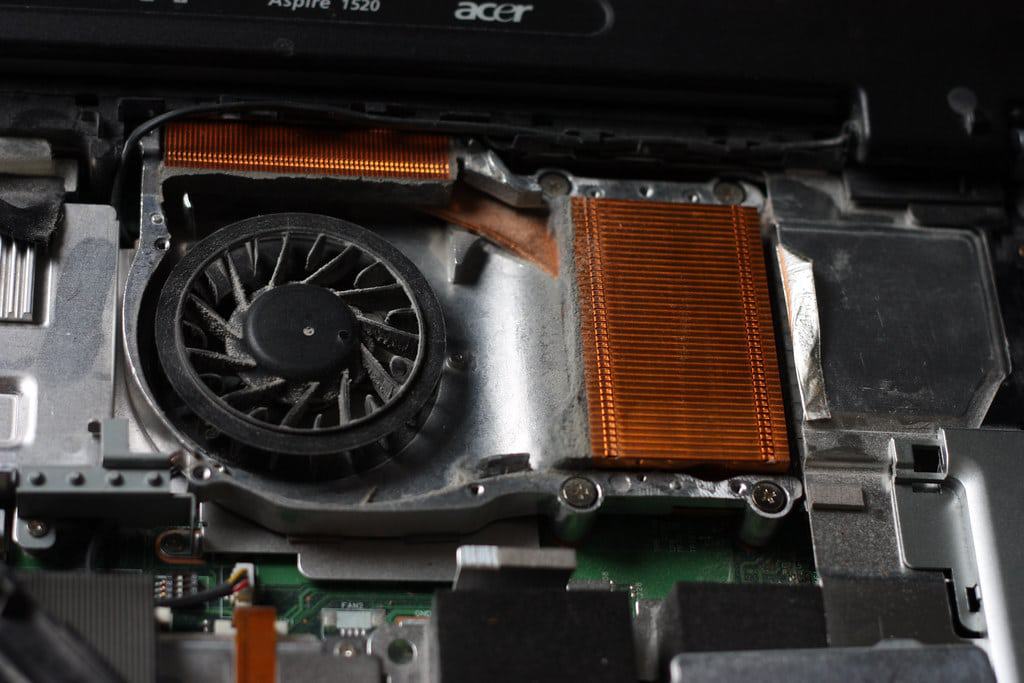As laptops have gotten sleek, sexier, and more powerful, so has our dependence on them.
From work, playing games, streaming Netflix to even our favorite sports, it can be our TV, mobile, or gaming console (pretty much anything you want to be).
But with all that power in the bank, it is no surprise that most laptops suffer from the problem of overheating.
Even if you aren’t using it excessively, older laptops do tend to heat up really fast.
Thankfully, preventing your laptop from turning into a frying pan is easy, and in this article, we’ll cover everything that you can do about it.
Tip 1: Place the laptop at a height
One of the main reasons why the laptop’s internal cooling system tends to fail to live up to expectations is not because it isn’t good enough, but because we often place the laptop improperly.
This is especially true if you happen to use your laptop in bed and place it on blankets, pillows, or even your laptop as it blocks the airflow, which will hamper the cooling and result in heat build-up, which, in turn, can toast your laptop.
But fear not because the solution is pretty simple.
All you need to do is ensure you place your laptop on a hard and flat surface. Now, you can use a makeshift stand using books, trays, etc. but if you have serious work, I would recommend you go with a laptop stand or an adjustable table.
Personally, I have been using the RhinoFlex Adjustable Stand. Made with Aluminum legs, it is pretty sturdy and allows me to work from the couch, bed, the recline.
It also has a mousepad, can be set up in under a minute, and when not in use, putting it away is easy since it can be folded (just what I need on those lazy Sunday mornings).
In case you do not have a designated workstation, this adjustable table by Defy Desk is large enough for a monitor, laptop, and even your coffee cup.
Tip 2: Buy a Laptop Cooler
If you have an old laptop or one with low specs, then just placing the laptop right won’t help solve the overheating. This is where laptop coolers can come in handy.
But finding the right laptop cooler is both hard and crucial. That is because there tons of brands and models claiming to be the best, and the wrong cooler will only make matters worse.
To ensure this does not happen, it is vital to not just know about the cooler but also have detailed knowledge about your laptop’s cooling system.
Most of the laptops have their ventilation at the bottom from where they take in the fresh air. The reason for that is because hot air tends to rise.
But this system isn’t always successful since it only manages to suck the air away and doesn’t exactly cool the laptop but instead can lead to overheating.
So if you happen to have a laptop with vents at the bottom, a cooler that blows cold air into the laptop is precisely what the doctor ordered.
Along with that, also make sure the cooler is energy-efficient and gives you effective cooling without piling on the electricity bills.
If you are in the mood for some DIY, you can also make your laptop cooler, and the video below gives you step by step details on how to do it.
It seems like a lot of work, doesn’t it? Well, there is an easier way, buy a laptop cooler. And to make that buying decision easier for you, we have covered detailed reviews right here.
Tip 3: It could be a software issue
In case the hardware changes do not provide you the desired results, it’s time to dig into the technical side and make software changes that impact the performance and power usage of the laptop.
Settings like the brightness, number of apps running, CPU clock speed all have a direct connection with the heat generated.
If you are using a Windows laptop, you can also adjust underclocking and undervolting settings available in the BIOS. But make sure you use expert help and guides while doing so.
Note: While this method is effective, it means giving up on performance power to keep the laptop from overheating.

